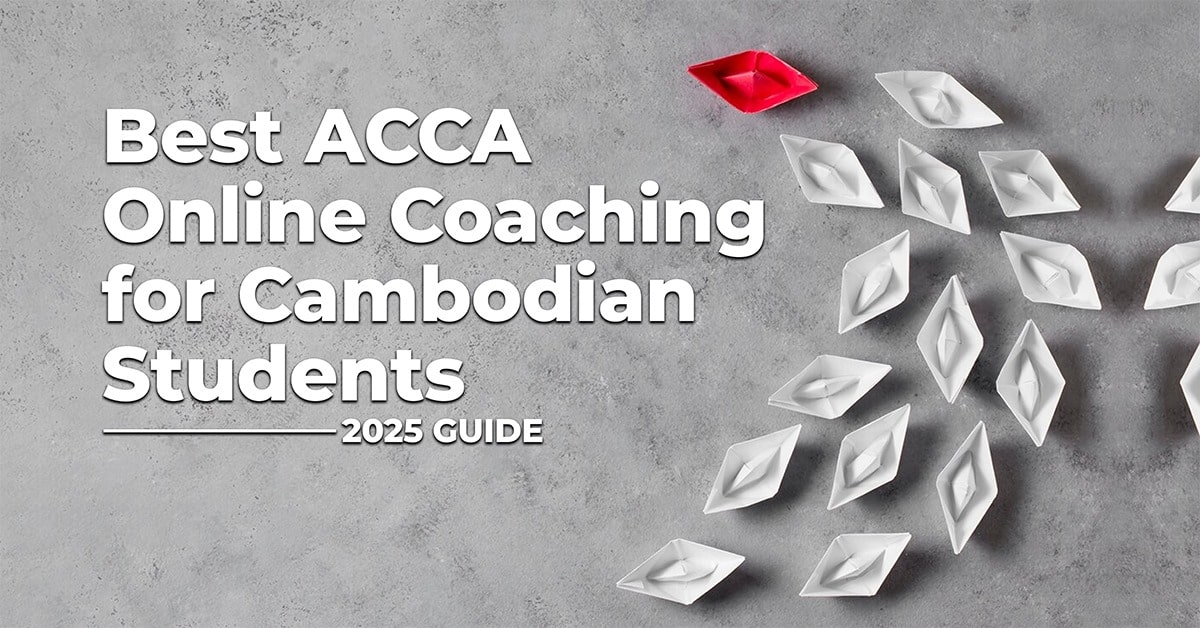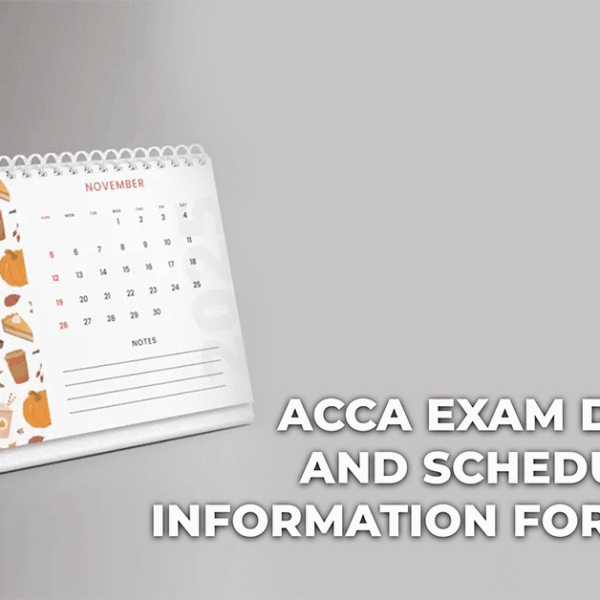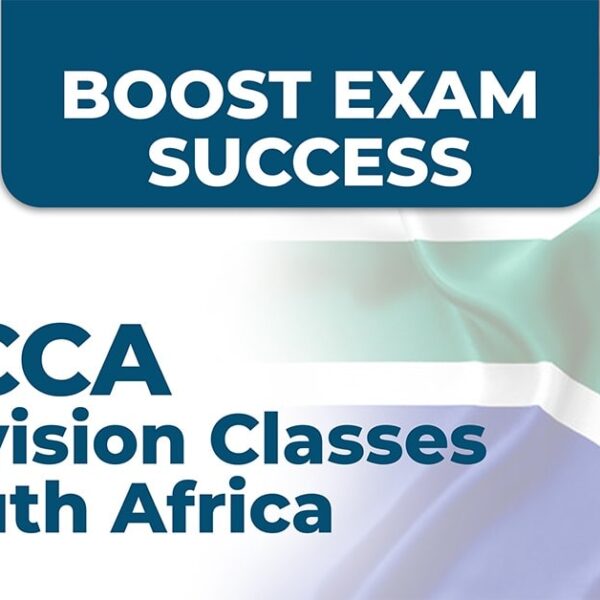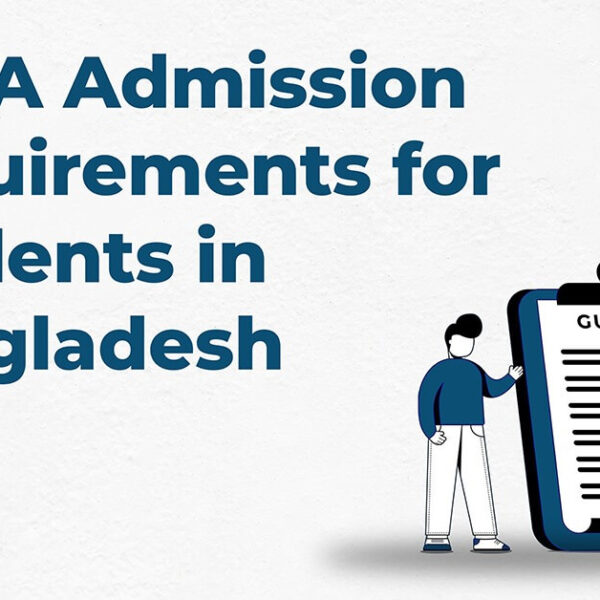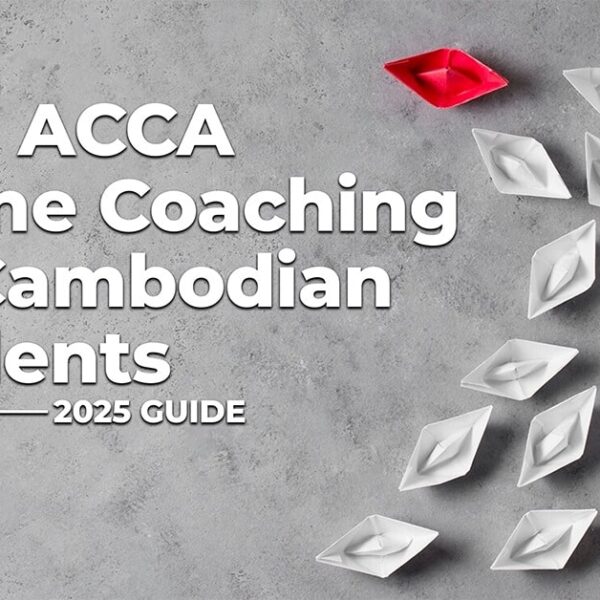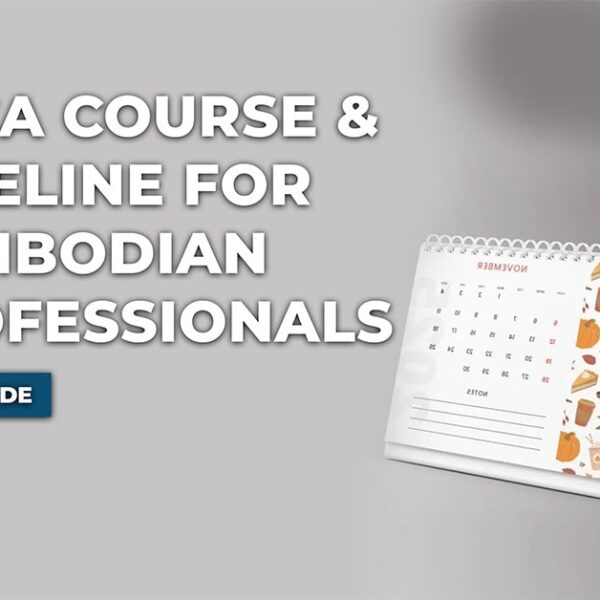The digital education revolution has created unprecedented access to ACCA qualification support for Cambodian students. With numerous online coaching options available, selecting the provider that best matches individual learning needs and circumstances becomes a critical decision. This comprehensive guide examines key factors Cambodian students should consider when evaluating ACCA online coaching services.
Understanding Different Platform Types
The online coaching marketplace features several distinct provider categories, each offering unique advantages:
Global Education Corporations Large international providers offering comprehensive platforms with substantial resources, extensive student communities, and significant technological investments. These established providers typically deliver consistent quality with premium pricing structures.
Specialised ACCA Providers Focused organisations exclusively serving ACCA students, often founded by former examiners or experienced tutors. These specialist providers typically offer deep expertise within more focused educational environments.
Individual Expert Educators Accomplished tutors offering personalised coaching through independent platforms. These arrangements often provide exceptional individual attention and specialised knowledge in particular subject areas.
Cambodian Education Partners Local institutions with online components offering ACCA support with particular understanding of the Cambodian context and learning preferences. These providers balance international standards with local relevance.
Understanding these distinctions helps Cambodian students narrow initial provider evaluations to categories aligned with their preferences.
Critical Quality Indicators
Beyond basic service descriptions, several factors provide meaningful quality insights:
ACCA Approval Status The Association of Chartered Certified Accountants formally approves learning providers meeting quality standards. This official recognition offers important quality assurance for Cambodian students selecting online programmes.
Success Rate Transparency Reputable providers openly share student success statistics, including examination pass rates compared with global averages. These metrics offer objective performance indicators beyond marketing claims.
Tutor Qualifications The academic credentials, professional experience, and teaching background of instructors significantly influence educational quality. Leading providers highlight their teaching team’s qualifications and specialisations.
Learning Material Quality Comprehensive providers develop proprietary study materials complementing official ACCA resources. The quality, currency, and presentation of these materials substantially impact learning effectiveness.
Technology Investment Superior platforms offer sophisticated learning management systems, mobile optimisation, interactive content, and artificial intelligence elements enhancing the educational experience. These technological foundations support effective knowledge acquisition.
Support System Evaluation
The guidance structure surrounding core content often determines student success:
Tutor Accessibility The mechanisms, responsiveness, and depth of instructor interactions vary significantly between providers. Effective programmes establish clear expectations about tutor availability and response timeframes.
Progress Monitoring Quality systems track individual performance, identify knowledge gaps, and provide early intervention for struggling students. These monitoring capabilities prove particularly valuable for self-directed Cambodian learners.
Peer Interaction Opportunities Collaborative elements including discussion forums, group projects, and virtual study groups combat isolation and enhance learning through knowledge sharing. These community aspects recreate valuable classroom dynamics in digital environments.
Mock Examination Feedback Comprehensive assessment feedback identifying specific improvement areas significantly enhances examination preparation. Detailed, personalised evaluation distinguishes superior providers from those offering generic responses.
Technical Support Responsiveness Prompt, effective assistance addressing platform navigation challenges prevents technological issues from disrupting learning progress. This support proves particularly important for students in Cambodia’s developing digital infrastructure.
Flexibility and Accessibility Considerations
For Cambodia’s working professionals, programme structure significantly impacts feasibility:
Study Schedule Adaptability The balance between structured progression and self-paced flexibility varies between providers. Ideal arrangements match individual circumstances while maintaining sufficient accountability for progress.
Content Delivery Methods Learning material format including video lectures, interactive textbooks, audio resources, and written guides should align with personal learning preferences and available technology access.
Mobile Learning Capabilities With many Cambodian professionals studying during commutes or brief availability windows, mobile-optimised content delivery significantly enhances accessibility in urban environments.
Offline Access Options In regions with connectivity limitations, downloadable content enabling offline study proves essential for uninterrupted learning despite infrastructure challenges sometimes encountered outside major Cambodian cities.
Language Support Availability While ACCA examinations require English proficiency, supplementary explanations in Khmer can enhance understanding of complex concepts for some Cambodian learners.
Investment Considerations
The financial and time commitments required vary substantially:
Total Programme Costs Comprehensive cost assessment should include tuition fees, examination charges, material expenses, and any supplementary resource requirements over the qualification journey.
Payment Structure Flexibility Options including instalment plans, pay-per-paper approaches, or subscription models offer different advantages depending on individual financial circumstances.
Money-Back Guarantees Performance-based refund policies indicate provider confidence while reducing financial risk for Cambodian students uncertain about online learning effectiveness.
Time Commitment Requirements Realistic estimates of required study hours enable effective integration with professional and personal responsibilities. Transparent programmes clearly communicate these expectations rather than minimising time investments to attract enrolments.
Conclusion
Selecting appropriate online coaching represents a significant decision impacting examination success likelihood and overall qualification experience. By methodically evaluating these factors, Cambodian students can identify providers aligned with their specific learning needs, preferences, and circumstances.
While no universal “best provider” exists, this structured assessment approach enables informed decisions matching individual priorities with appropriate educational partners. This thoughtful selection process establishes a strong foundation for successful ACCA qualification journeys regardless of location throughout Cambodia.

